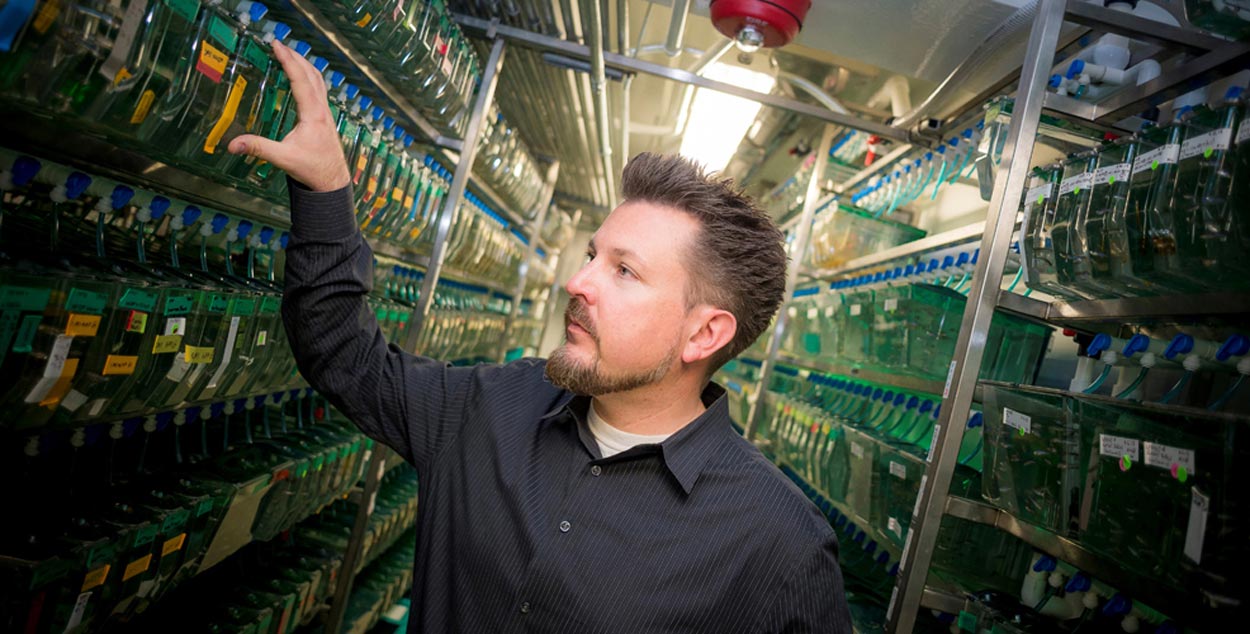David Traver Wins Prestigious International Hematology Award
July 31, 2019
By Mario Aguilera

Erik Jepsen, UC San Diego Publications
UC San Diego Division of Biological Sciences Professor David Traver has been selected to receive the 2019 McCulloch and Till Award from the International Society for Experimental Hematology (ISEH).
The award honors early- to mid-career scientists who have made a substantial impact in the field of hematology.
Traver, a professor in the Biological Sciences Section of Cell and Developmental Biology and the School of Medicine’s Department of Cellular and Molecular Medicine, uses zebrafish embryos to study the development of blood cell components in a process known as hematopoiesis. Zebrafish translucency allows Traver and members of his laboratory to analyze how these systems arise from the earliest stages through blood stem cells.
The research carries important implications for a host of human health conditions, including blood disorders, immune system deficiencies and genetics. He and his colleagues recently described how zebrafish can be used to explore alternatives to bone marrow donations for blood diseases such as leukemia and lymphoma. Traver’s research is also featured in a UCTV Stem Cell Channel program: “From Zebrafish to Leukemia Cure.”
“David is a long-standing leader in the ISEH community and a well-respected colleague who has made substantial contributions to the field of hematology, and in particular to our understanding of developmental hematopoiesis,” the ISEH noted in its award announcement.
Traver will receive the award on Aug. 25, 2019, during the 2019 ISEH annual scientific meeting in Brisbane, Australia, where he will deliver the keynote McCulloch and Till Award Lecture: “Decoding the molecular cues that regulate HSC (hematopoietic stem cell) speciation.”
“David’s work is a beautiful example of what can be accomplished when science, art, and innovation meet,” said Hanna Mikkola, a professor at the UCLA Broad Stem Cell Research Center. “Taking his unique expertise in mammalian hematopoietic stem and progenitor cell biology to the zebrafish model, David opened new doors to study the birth and regeneration of vertebrate hematopoietic system in a genetically malleable and visually appealing model. His work has provided answers to many long-standing questions about HSC generation, and enabled the visualization of these landmark events in real time. David has also been an instrumental leader in ISEH, shaping the society and our annual meeting as the permanent home for developmental hematopoiesis enthusiasts.”
Prior to joining UC San Diego, Traver held a postdoctoral position at Harvard University and Boston Children’s Hospital, where he was the first to develop the zebrafish model as a tool for studying adult hematopoiesis. He received his PhD in immunology from Stanford University and bachelor’s degree from the University of Washington.
